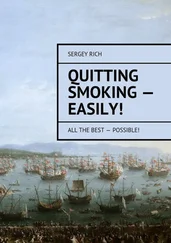Criminal? justified? arrived at what June?”
That nervous conscience amid the concessions
Is a haunting, haunted moon.
Someone Is Harshly Coughing as Before
Someone is harshly coughing on the next floor,
Sudden excitement catching the flesh of his throat:
Who is the sick one?
Who will knock at the door,
Ask what is wrong and sweetly pay attention,
The shy withdrawal of the sensitive face
Embarrassing both, but double shame is tender
— We will mind our ignorant business, keep our place.
But it is God, who has caught cold again,
Wandering helplessly in the world once more,
Now he is phthisic, and he is, poor Keats
(Pardon, O Father, unknowable Dear, this word,
Only the cartoon is lucid, only the curse is heard),
Longing for Eden, afraid of the coming war.
The past, a giant shadow like the twilight,
The moving street on which the autos slide,
The buildings’ heights, like broken teeth,
Repeat necessity on every side,
The age requires death and is not denied,
He has come as a young man to be hanged once more!
Another mystery must be crucified,
Another exile bare his complex care,
Another spent head spill its wine, before
(When smoke in silence curves
from every fallen side)
Pity and Peace return, padding the broken floor
With heavy feet.
Their linen hands will hide
In the stupid opiate the exhausted war.
Tired and Unhappy, You Think of Houses
Tired and unhappy, you think of houses
Soft-carpeted and warm in the December evening,
While snow’s white pieces fall past the window,
And the orange firelight leaps.
A young girl sings
That song of Gluck where Orpheus pleads with Death;
Her elders watch, nodding their happiness
To see time fresh again in her self-conscious eyes:
The servants bring the coffee, the children retire,
Elder and younger yawn and go to bed,
The coals fade and glow, rose and ashen,
It is time to shake yourself! and break this
Banal dream, and turn your head
Where the underground is charged, where the weight
Of the lean buildings is seen,
Where close in the subway rush, anonymous
In the audience, well-dressed or mean,
So many surround you, ringing your fate,
Caught in an anger exact as a machine!
A Young Child and His Pregnant Mother
At four years Nature is mountainous,
Mysterious, and submarine. Even
A city child knows this, hearing the subway’s
Rumor underground. Between the grate,
Dropping his penny, he learned out all loss,
The irretrievable cent of fate,
And now this newest of the mysteries,
Confronts his honest and his studious eyes—
His mother much too fat and absentminded,
Gazing far past his face, careless of him,
His fume, his charm, his bedtime, and warm milk,
As soon the night will be too dark, the spring
Too late, desire strange, and time too fast,
This first estrangement is a gradual thing
(His mother once so svelte, so often sick!
Towering father did this: what a trick!)
Explained too cautiously, containing fear,
Another being’s being, becoming dear:
All men are enemies: thus even brothers
Can separate each other from their mothers!
No better example than this unborn brother
Shall teach him of his exile from his mother,
Measured by his distance from the sky,
Spoken in two vowels,
I am I.
Sonnet: O City, City
To live between terms, to live where death
Has his loud picture in the subway ride,
Being amid six million souls, their breath
An empty song suppressed on every side,
Where the sliding auto’s catastrophe
Is a gust past the curb, where numb and high
The office building rises to its tyranny,
Is our anguished diminution until we die.
Whence, if ever, shall come the actuality
Of a voice speaking the mind’s knowing,
The sunlight bright on the green windowshade,
And the self articulate, affectionate, and flowing,
Ease, warmth, light, the utter showing,
When in the white bed all things are made.
The Ballet of the Fifth Year
Where the sea gulls sleep or indeed where they fly
Is a place of different traffic. Although I
Consider the fishing bay (where I see them dip and curve
And purely glide) a place that weakens the nerve
Of will, and closes my eyes, as they should not be
(They should burn like the street-light all night quietly,
So that whatever is present will be known to me),
Nevertheless the gulls and the imagination
Of where they sleep, which comes to creation
In strict shape and color, from their dallying
Their wings slowly, and suddenly rallying
Over, up, down the arabesque of descent,
Is an old act enacted, my fabulous intent
When I skated, afraid of policemen, five years old,
In the winter sunset, sorrowful and cold,
Hardly attained to thought, but old enough to know
Such grace, so self-contained, was the best escape to know.
Calmly We Walk through This April’s Day
Calmly we walk through this April’s day,
Metropolitan poetry here and there,
In the park sit pauper and rentier ,
The screaming children, the motor-car
Fugitive about us, running away,
Between the worker and the millionaire
Number provides all distances,
It is Nineteen Thirty-Seven now,
Many great dears are taken away,
What will become of you and me
(This is the school in which we learn…)
Besides the photo and the memory?
(… that time is the fire in which we burn.)
(This is the school in which we learn…)
What is the self amid this blaze?
What am I now that I was then
Which I shall suffer and act again,
The theodicy I wrote in my high school days
Restored all life from infancy,
The children shouting are bright as they run
(This is the school in which they learn…)
Ravished entirely in their passing play!
(… that time is the fire in which they burn.)
Avid its rush, that reeling blaze!
Where is my father and Eleanor?
Not where are they now, dead seven years,
But what they were then?
No more? No more?
From Nineteen-Fourteen to the present day,
Bert Spira and Rhoda consume, consume
Not where they are now (where are they now?)
But what they were then, both beautiful;
Each minute bursts in the burning room,
The great globe reels in the solar fire,
Spinning the trivial and unique away.
(How all things flash! How all things flare!)
What am I now that I was then?
May memory restore again and again
The smallest color of the smallest day:
Time is the school in which we learn,
Time is the fire in which we burn.
Dogs Are Shakespearean, Children Are Strangers
Dogs are Shakespearean, children are strangers.
Let Freud and Wordsworth discuss the child,
Angels and Platonists shall judge the dog,
The running dog, who paused, distending nostrils,
Then barked and wailed; the boy who pinched his sister,
The little girl who sang the song from Twelfth Night ,
As if she understood the wind and rain,
The dog who moaned, hearing the violins in concert.
— O I am sad when I see dogs or children!
For they are strangers, they are Shakespearean.
Tell us, Freud, can it be that lovely children
Have merely ugly dreams of natural functions?
And you, too, Wordsworth, are children truly
Clouded with glory, learned in dark Nature?
Читать дальше












